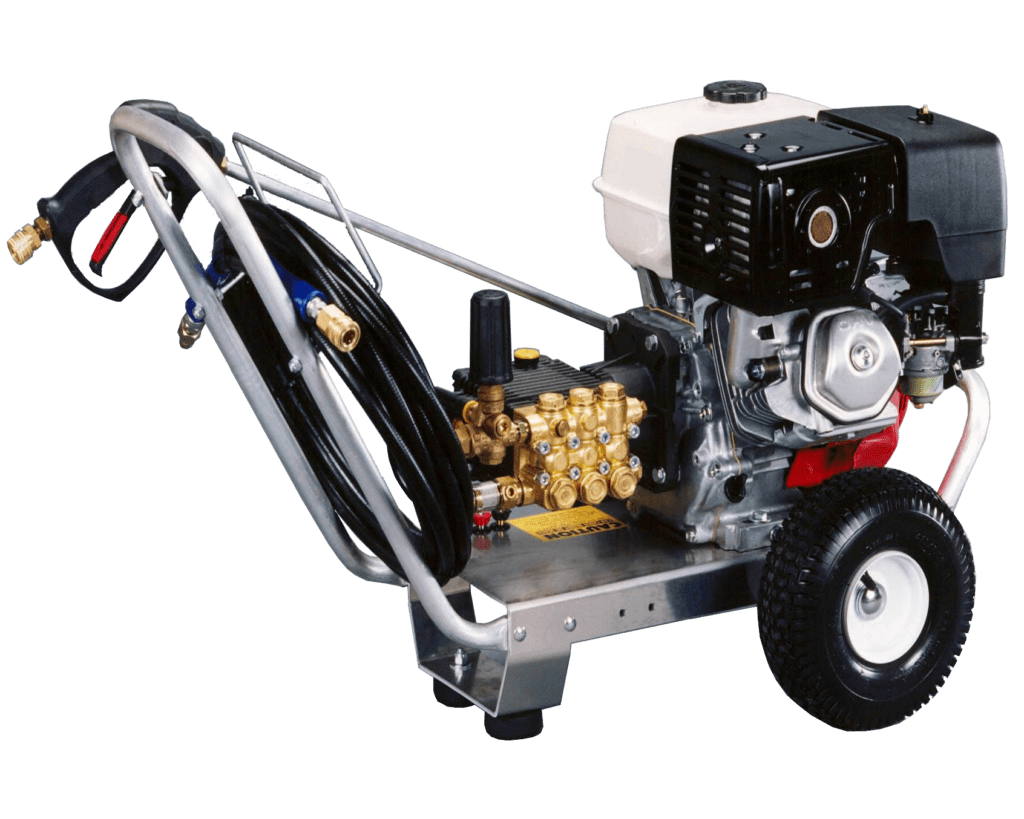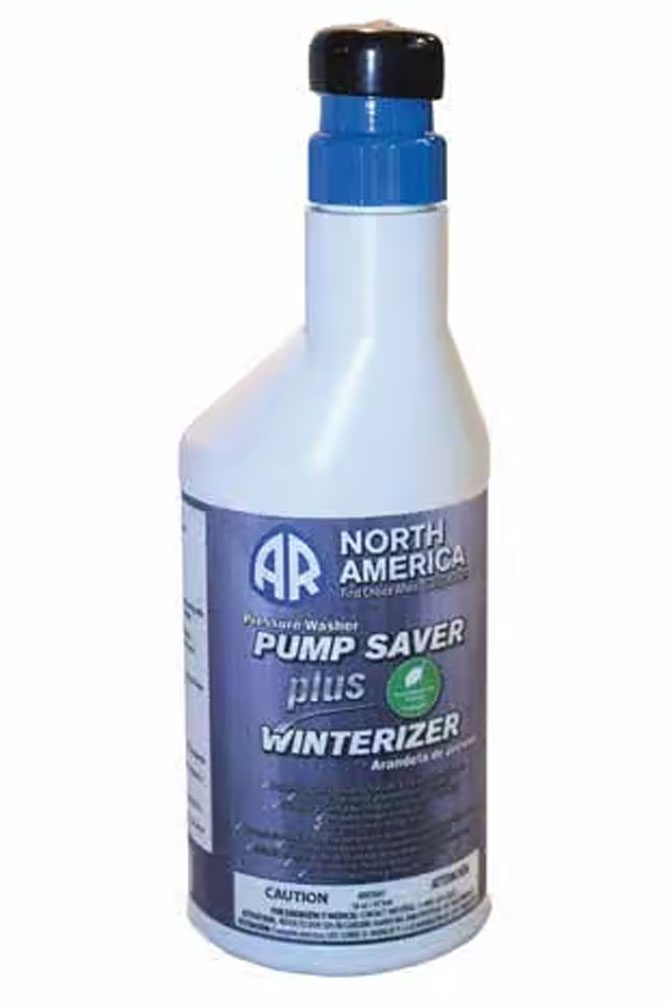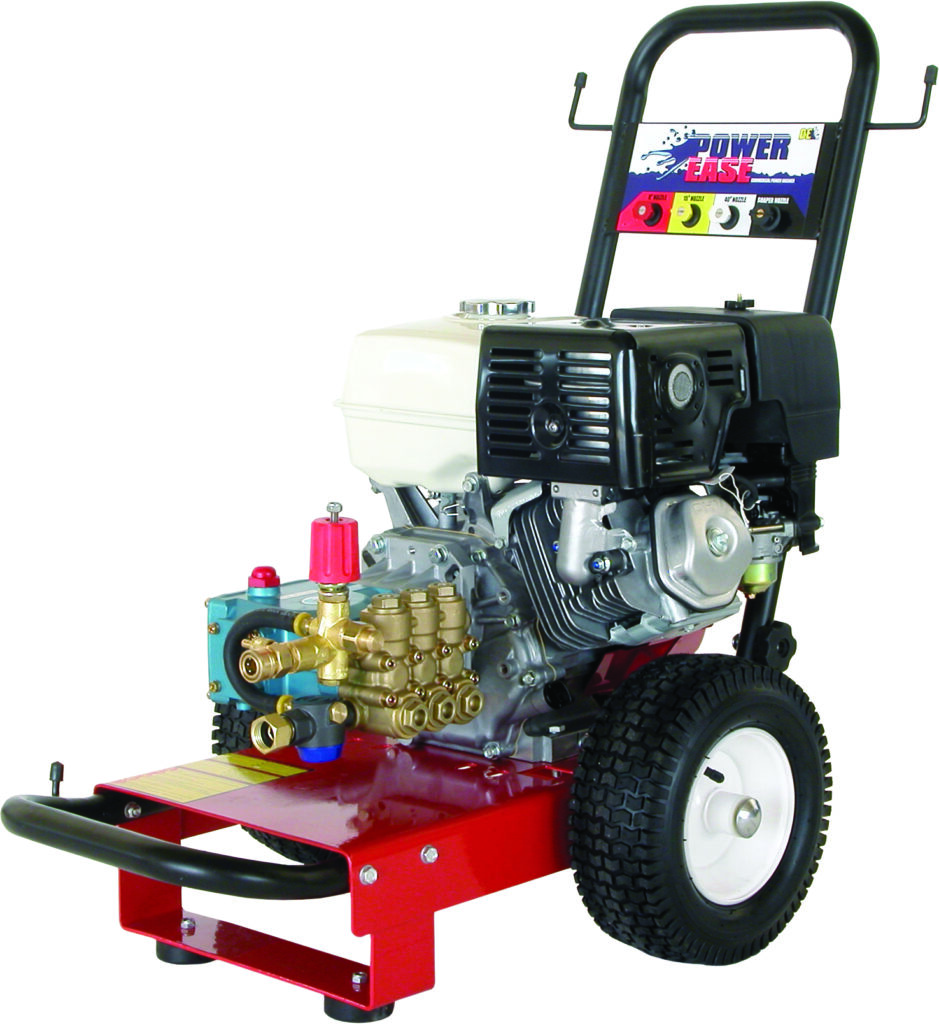Your pressure washers are the heart of your pressure washing business! But as the cold winter months begin to come around, you’ll be putting more and more units into storage as the jobs dry up. How can you make sure that these units stay in good condition over the winter and are ready to go with minimal maintenance when you need them in the spring? Winterizing your pressure washers is the key!
Why Should You Winterize Your Pressure Washers?
Pressure washers are vulnerable to the environment around them. Even if you are putting them into storage in a garage or shop over the winter time, they are still susceptible to the cold temperatures of the season. Between extreme temperatures and long periods where they sit idle, a pressure washer can deteriorate. When you winterize your power washer, you protect it from cold weather and keep the internal seals in good shape. You’ll also prevent issues with the power generation – be it gas or electric.
Common Pressure Washer Winterizing Steps
Gas-powered and electric-powered pressure washers, for the most part, need to be winterized the same. There are some minor differences – we’ll cover these in the next section. That being said, most pressure washers have common steps you need to follow to winterize them properly.
- Drain the Tanks: It should seem like an obvious first step – remove all water, chemicals, and other liquids from the tanks and lines of your pressure washer. Water can freeze up while chemicals aren’t made to sit in contact with your pressure washer parts for months on end.
- Blow Out the Lines: You don’t want any liquids left in your system at all, and this can take some effort. Use an air compressor to blow all visible liquid out of lines, hoses, tanks, and more!
- Antifreeze Rinse: Even after you’ve drained all perceivable moisture, you’ll want to rinse your pump’s system with a small amount of antifreeze – sometimes referred to as pump saver. Even if you can’t see moisture, there may be some remaining. An antifreeze rinse will help protect your hose, seals, and other rubber parts over the winter of idling!
- Clean the Nozzles and Guns: Don’t neglect your washer’s accessories either! You need to make sure your nozzles are clear of debris before storing them away for the season. Deposits and buildup left inside the accessories over the winter can cause corrosion and damage them to the point of needing to be replaced.
- Change the Oil: Don’t put this off until spring. Changing the oil before stowing your pressure washers for the winters keep everything lubed up as it should be! Make sure to clean or change the oil filter when you do this.
- Clean Filters: Your pressure washer filters keep debris and particulates out of the fluid system, but they can get clogged up. If you don’t clean them out before storing them for the winter, the dirt and particulates in there can dry together, and clog the filter. Then you’ll need to buy a replacement. Cleaning the filter will prevent having to buy a new part! Consider changing the air and fuel filters as well.
- Clean Exposed Surfaces: Use a damp cloth and wipe down your pressure washer as best you can, getting rid of dust, debris, and dirt from all exterior surfaces. These can attract moisture and lead to rust. Not only will it keep your washer rust free, but it will help keep your washer looking like new!
- Store in a Dry, Temperature-Controlled Location: Keeping your pressure washers warm and dry over the winter will prevent problems from creeping up after you’ve put them in storage. Make sure they are protected from the elements, from moisture, and from extreme temperatures. If you can’t store the entire unit inside, at least make sure to remove hoses, seals, and other parts to prevent cracking and damage from low temps.
- Damage Protection: There are a variety of ways your pressure washer could be damaged in storage – but there are ways to protect against them as well! Bumps, drops, and collisions in a busy shop need to be avoided, so make sure your pressure washers are somewhere out of the way. Rodents can also be an issue – mice will chew wires, build nests in intakes, and can be a major issue! Use deterrent and traps, wrap up your pressure washer, and make sure mice don’t ruin your washer over the winter.
When all else fails, make sure to consult your owners’ manual. Every pump manufacturer offers winterizing recommendations. Many of them have unique points they suggest that you pay attention to with their pressure washers. Follow them to the letter and your pressure washer will reward you!
Winterizing Gas Powered Versus Electric-Powered Pressure Washers
When you winterize your pressure washer, you’ll need to deal with the power source as well. Depending on the type of power, you’ll have different steps to follow.
For electric-powered pressure washers that are battery-powered, your biggest concern is the battery being drained over the winter. Preventing this is as simple as disconnecting the battery! If you leave the battery connected, there will be a slow trickle of power leaking. It’s not a massive amount of power loss all in one go. If you periodically start your washer over the winter you may not notice it. However, if you leave it connected and sitting idle for months on end, the trickle could empty the pressure washer to where it will not start come spring.
Gas-powered pressure washers require a little more work to winterize, thanks to more moving parts. You’ll have to either drain the fuel, or add fuel stabilizer to fresh fuel before storing. This is because of phase separation, an issue that occurs in fuel with ethanol added. As ethanol-blend gasoline deteriorates, it breaks down and can cause rust, corrosion, and gum or varnish build-up. This can lead to long-term damage and break-downs. Also, you have to disconnect the spark plug wires, and replace the spark plugs.
Preparing a Pressure Washer for Winter Use
You may still have some projects underway as the temperature drops. Winter is a dirty time of year! You still need to prepare your washer for use in these conditions – as well as plan ahead for your action. You’ll still want to use antifreeze if you’ll be leaving it sitting longer than normal. When you are doing the jobs themselves, make sure to be aware of the hazards of washing in winter. You could be creating patches of ice with your work. Wear the appropriate footwear, and lay down grit or salt to prevent icing or at least provide traction for pedestrians.
Winterizing your pressure washers might seem like a pain. We’d all love to just close up shop and not have to do the extra work! However, properly winterizing your pressure washers protects your investments and will have you ready to hit the ground running come spring!














